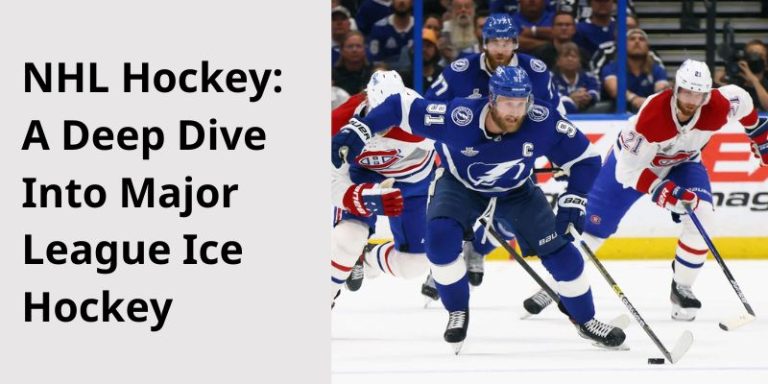Globally, the Premier League is renowned for its unparalleled competitiveness and thrilling football matches. Renowned for its high-octane matches, passionate fan base, and world-class talent, it has solidified its position as a global football powerhouse. Founded in 1992, the Premier League has grown exponentially, attracting top players, managers, and millions of fans from across the globe.
History and Formation
Early Beginnings
The Premier League was established in 1992 as a breakaway from the Football League First Division, aiming to capitalize on lucrative TV rights deals. The founding clubs sought to create a more competitive and commercially successful league, with an emphasis on enhancing the quality of football and generating higher revenues. Since its inception, the league has undergone significant evolution, becoming a beacon of excellence in the football world.
Key Developments
Over the years, the Premier League has seen a continuous influx of international talent, innovative management strategies, and technological advancements, which have contributed to its growth and success. The league’s ability to adapt and innovate has kept it at the forefront of the football world.
Structure and Competition
League Format
The Premier League consists of 20 teams that compete in a round-robin format, with each team playing 38 matches per season. The Premier League utilizes a promotion and relegation framework linked to the English Football League (EFL) Championship. The bottom three teams are relegated to the Championship, while the top two teams from the Championship, along with the playoff winner, ascend to the Premier League.
Competitive Balance
One of the hallmarks of the Premier League is its competitive balance. Unlike some other leagues where a few teams dominate, the Premier League often sees multiple clubs contending for the title, making the competition thrilling and unpredictable.
Key Clubs and Rivalries
Manchester United
With a rich history and a record 20 league titles, Manchester United is one of the most successful clubs in the Premier League. Their fierce rivalry with Liverpool, known as the “Northwest Derby,” is one of the most anticipated fixtures each season.
Liverpool FC
Another football giant, Liverpool has won 19 league titles and boasts a passionate fan base. Their rivalry with Manchester United and the Merseyside Derby against Everton are significant highlights.
Arsenal FC
Known for their attractive style of play, Arsenal has achieved considerable success, including an unbeaten league season in 2003-2004. The North London Derby against Tottenham Hotspur is a key rivalry.
Manchester City
In recent years, Manchester City has emerged as a dominant force, winning multiple league titles. Their rivalry with Manchester United adds excitement to the Premier League.
Chelsea FC
Chelsea’s investment in top-tier talent has paid off, with several league titles and a global fan base. Their matchups against London rivals Arsenal and Tottenham are always thrilling.
Notable Players and Managers
Legendary Players
The Premier League has been home to countless football legends. Icons like Thierry Henry, Alan Shearer, Ryan Giggs, and Cristiano Ronaldo have graced the league with their extraordinary talents. These players have left an indelible mark on the league and have inspired countless fans and aspiring footballers worldwide.
Influential Managers
The league also boasts highly reputable managers like Sir Alex Ferguson, Arsène Wenger, Pep Guardiola, and Jürgen Klopp, who have significantly influenced the game. Their innovative tactics, leadership qualities, and ability to achieve success have elevated the Premier League’s reputation as a breeding ground for football excellence.
Worldwide Influence and Economic Achievements
Lucrative Broadcasting Deals
The Premier League’s commercial success is unparalleled. It boasts lucrative broadcasting deals, sponsorships, and merchandising, contributing to its financial prowess. Broadcast in over 200 countries, the league’s global audience is immense, with millions of fans tuning in to witness the spectacle. This commercial success has enabled clubs to attract top talent and invest heavily in infrastructure and youth development.
Marketing and Merchandising
The league’s branding and marketing efforts have transformed it into a global phenomenon. Merchandise sales, including club kits, memorabilia, and official merchandise, generate substantial revenue and contribute to the league’s widespread popularity.
Cultural Impact
Promoting Football Culture
The Premier League’s influence extends beyond the pitch. It plays an integral role in promoting football culture worldwide, inspiring aspiring players and fostering a sense of community among fans. The league’s social media presence is vast, with clubs and players engaging directly with fans, enhancing the overall experience. Community outreach programs and charity initiatives further underscore the league’s positive impact on society.
Community Engagement
Premier League clubs are deeply involved in their communities, using their platform to drive positive change and support various social causes. Community outreach programs focus on education, health, inclusion, and social development, contributing to the well-being of local communities. Initiatives like the Premier League Charitable Fund and individual club foundations exemplify the league’s commitment to social responsibility.
Challenges and Controversies
Financial Disparity
While the Premier League is celebrated for its success, it is not without challenges and controversies. Issues of financial disparity, with top clubs enjoying significant financial advantages over smaller clubs, have sparked debates about the league’s competitiveness. Addressing this imbalance remains a priority to ensure a level playing field.
Fan Conduct and Safety
Instances of fan violence, players’ misconduct, and controversial refereeing decisions have occasionally marred the league’s reputation. However, efforts to address these issues through regulations, technology like VAR (Video Assistant Referee), and community engagement initiatives continue to shape the league’s evolution.
Future Directions
Nurturing Young Talent and Ensuring Longevity
The future of the Premier League looks promising, with continued investment in youth development, infrastructure, and technology. Clubs are focusing on developing homegrown talent and building sustainable models to ensure long-term success.
Technological Advancements
Adopting cutting-edge technologies like AI-driven analytics, advanced training methods, and digital fan engagement platforms will keep the Premier League at the forefront of innovation in football.
Preserving Competitive Equity
The league’s commitment to maintaining its competitive edge and global appeal is evident through strategic partnerships and innovative initiatives. By promoting fairness and inclusivity, the Premier League aims to offer an exciting and unpredictable competition for years to come.
Conclusion
The Premier League remains a beacon of excellence in global football, offering thrilling matches, world-class talent, and a passionate fan base. Its rich history, competitive nature, and cultural impact make it a dominant force in the football world. As the league looks to the future, it continues to inspire and entertain millions of fans across the globe, cementing its place as the pinnacle of football excellence.






